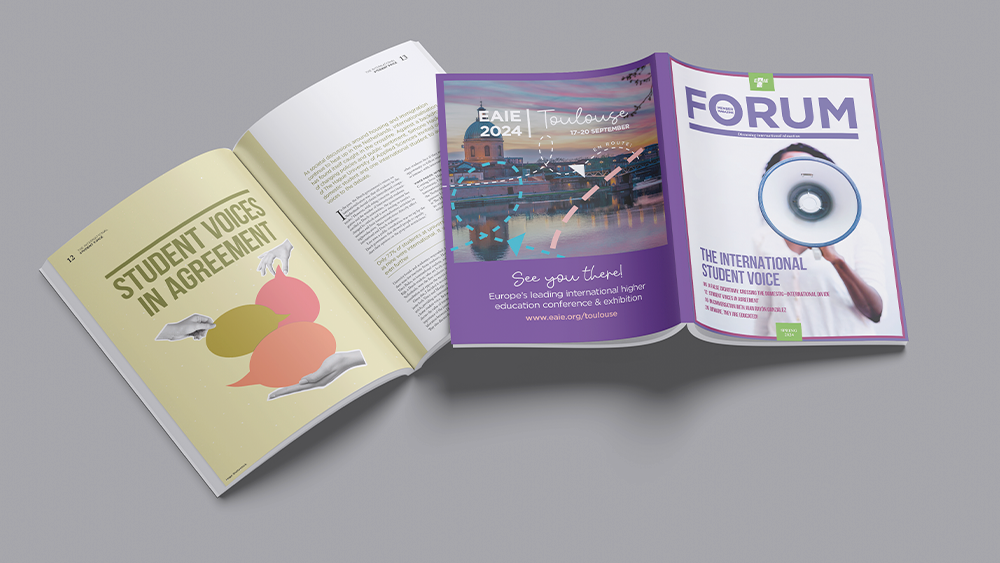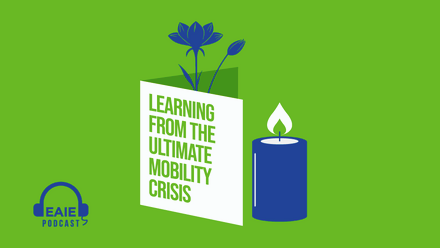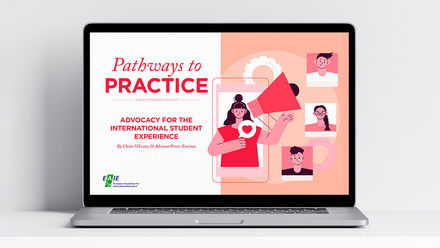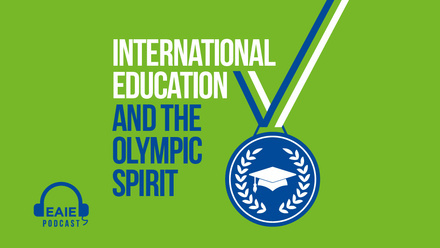Student voices in agreement

This article, pulled from the latest edition of Forum magazine, examines the shift in Dutch government policy from promoting to restricting internationalisation in higher education, amid rising immigration concerns. Simone Hackett introduces us to international and Dutch students, Vince Pados and Marijn Rijk, who argue against these restrictions, highlighting the educational and economic benefits of a diverse student body and the broader cultural and professional opportunities that internationalisation provides.
In the past, the Dutch government’s vision on internationalisation was that all students in the Netherlands should obtain intercultural competencies. However, with rising concerns over immigration and the number of international students enrolled at Dutch universities, the government has changed its outlook and is now aiming to restrict numbers and limit internationalisation activities in higher education. These restrictions directly affect international and Dutch students.
Last year, a public consultation was set up by the Dutch government that allowed people to openly share their opinions on the proposed restrictions. University boards and academics responded, but there were few reactions from students. However, Vince Pados, an international student, and Marijn Rijk, a Dutch student, who are both studying in the Netherlands, were the first students to react to the consultation and oppose the restrictions.
Given this, I decided it would be valuable to invite both Vince and Marijn to contribute to this article, providing an international student voice and a home student voice. Below, both Vince and Marijn discuss the value of internationalisation, the importance of the international classroom and collaboration between Dutch and international students. They also discuss the fears and setbacks that they and other students face if they are to be deprived of the opportunity to follow internationally oriented courses or interact with international students.
Vince Pados: international student
Coming from Hungary and having grown up in Germany, I have always been drawn towards international environments. I decided to study in the Netherlands for several reasons. First, the programme I study – international sports management at The Hague University of Applied Sciences – with its strong international orientation and fast-track duration of three years, is one of the few English-taught programmes of its kind in the EU. In addition, the Netherlands has an inclusive and multicultural reputation and The Hague, known as the city of peace and justice and for its international character, appealed to me greatly.
Recently, there have been claims that Dutch taxpayers’ money is being used to fund international students’ education and that international students are taking advantage of the Dutch education system. I find these claims surprising for several reasons.
First of all, 25.1% of the total student population registered at Dutch research universities in 2022–2023 was international; however, this figure was only 7.7% at universities of applied sciences such as mine. This is not a big percentage, and it would be a shame to reduce it even further. In Germany, there are a lot more international students, and they are seen as an asset to society. The German Academic Exchange Service (DAAD) has recommended that the German government put a plan in place to double the retention of international students by 2030.
International students generate around €1.5 billion for the Dutch economy each year.
Second, according to recent research, international students generate around €1.5 billion for the Dutch economy each year. This significant contribution is not just because of the quintupled tuition fees that non-EU students pay but also because many international students live, work and pay taxes here. I am lucky enough to work as a basketball coach at an international school in The Hague; many international students are rejected for the jobs they want because of language or cultural barriers, therefore taking whatever jobs they can get, including low-skilled roles that Dutch people are reluctant to take on, such as restaurant kitchen jobs, cleaning jobs or food delivery. Even so, the income that is generated by international students brings economic development, increased employment and societal diversity to both sparsely and densely populated locations throughout the Netherlands. More and more international students decide to stay and work in the Netherlands, securing jobs and again showing their contribution to Dutch society by filling labour shortages and paying taxes. According to recent statistics, 32% of the international students who graduated in 2018–2019 were working in the Netherlands one year later.
As an EU student, like a regular Dutch student, I am entitled to subsidised tuition fees. In Germany, tuition fees are minimal, approximately €600 a year, while Austrian tuition fees can be as low as €20 per semester. I still chose to study in the Netherlands, where I pay a subsidised tuition fee of approximately €2220 per year. This excludes housing costs, food and bills, and I do not receive any additional grants. For non-EU students, the tuition fee is much higher.
Finally, and perhaps most importantly, the Netherlands is a country that has been known globally for its inclusivity and multiculturalism. This multiculturalism provides opportunities for learning not only between international and Dutch students in higher education but also outside the classroom in everyday life. My university puts a strong emphasis on helping students develop the skills they need to become global citizens and taps into this cultural diversity by designing courses that have intercultural and international learning outcomes. I get the opportunity to take part in collaborative learning projects with Dutch and international students, in which we work with Dutch and international organisations and businesses. These opportunities have helped me to become more open-minded and to build up my knowledge while also learning new content, new perspectives and different approaches to solving problems.
During my studies, I have built networks and made friends with both Dutch and international students. The experience has helped me develop not only my academic skills and knowledge but also my intercultural and collaborative skills, which will enable me to find better jobs. Overall, I am extremely grateful to be able to study in the Netherlands. Without this opportunity, I would not have made the friends I have, nor would I have had the opportunity to acquire the knowledge and skills that will help me in my future career. I look forward to finishing my studies in the Netherlands and building more international connections to make this country and the world a better place.
Marijn Rijk: Dutch student
At 18 years old, I moved from a rural area in the south of the Netherlands to the political capital of the Netherlands: The Hague. With this move, a new world opened up to me, and I had the choice to study my preferred degree, a Bachelor’s in international public policy and leadership, in either Dutch, my mother tongue, or English, my second language. It was logical for me to go for English, an international working language, as I chose to study in The Hague, which is renowned as the international city of peace and justice. In addition, studying in English would broaden my horizons, help me develop my communication skills and networks and provide me with international career prospects.
I am in the third year of my programme, and I am thoroughly satisfied with my choice of studies and language. Studying in a classroom with a mix of students from the EU and beyond has been such an enriching experience. It has expanded my horizons to Bangladesh, Brazil and the United States, providing me with different perspectives and approaches, and it has pushed me to think critically about societal and global issues and developments.
However, when the Dutch government last year proposed restrictions on internationalisation, it raised a lot of questions within me. International students have been the focus of many heated discussions around some of the problems the Netherlands is facing, such as the housing crisis. Although I personally see the struggle that international students experience – high tuition fees, living expenses and the difficulty of finding accommodation and jobs – I also understand some of the government’s concerns. The housing crisis is a societal problem that needs urgent attention, and it has been claimed that international students take up housing opportunities and pressure the market. As a student, I am experiencing this crisis first-hand and have also had difficulty finding accommodation. However, international students did not cause the housing crisis in the Netherlands. Restricting the number of international students coming to the Netherlands and taking away an international student’s opportunity to study here, with the goal of increasing the quality of a Dutch student’s experience, will not solve the problems we are facing.
Internationalisation brings fundamental value to the world... It is only through internationalisation that we can hope to achieve this.
Internationalisation brings fundamental value to the world. The opportunity for young individuals to be exposed to a foreign culture, allowing them to develop an understanding and empathy towards classmates from all around the world, is something that I believe only brings good to our world. Such values are also essential to the European spirit, with the European Union cherishing values such as equality, freedom and the right of citizens to move and reside freely within its borders. The government’s proposal on internationalisation seems to move away from these values as it seeks measures to limit the flow of international students and attempts to limit English-taught education, which I personally find a shame. Without these international opportunities, I would have been deprived of the intercultural experiences I have had during my studies, which have helped me develop. Looking to the future, I see a Europe that needs more understanding, along with international solidarity, to solve the problems it is facing in harmony with its citizens. It is only through internationalisation that we can hope to achieve this.






